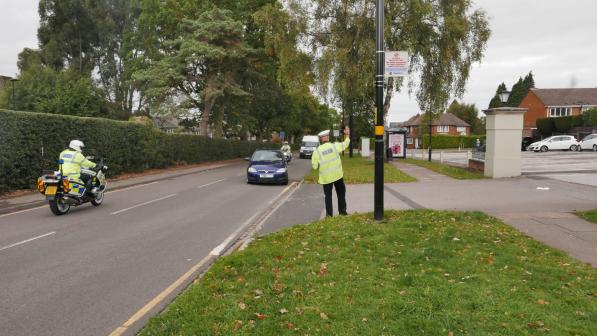What's in a word? Cycling UK helps draw up new media guidelines

How often have you read in the press that a ‘car’ rather than a ‘driver’ was involved in a crash with a cyclist?
A collision described as an ‘accident’?
Or that a cyclist injured or killed wasn’t wearing a helmet or hi-vis, as if that in some way contributed to their own misfortune?
It happens all the time, and yet the effect not only dehumanises vulnerable road users, but deflects responsibility away from motorists and contributes to failings in the justice system.
That’s why we’ve been working with the Active Travel Academy on drawing up a new set of media reporting guidelines to help journalists, broadcasters and publishers improve the public debate around road safety.

Duncan Dollimore, head of campaigns at Cycling UK, said: “It’s important because words matter, and getting it wrong makes our roads less safe. It only takes a few words but those words can have enormous and subliminal consequences on how the public thinks about road safety and perceives cyclists and pedestrians.
“There are already guidelines for journalists on how to report on suicide, children, and refugees, so it’s only right that there should a guide on how to write about road safety.
“It will also help to address the common misperception that cycling is inherently dangerous, one of the most often quoted reasons for why people don’t cycle more.”
Words can have enormous and subliminal consequences on how the public thinks about road safety
Duncan Dollimore, head of campaigns
Although most of us recognise that cycling is good for our health as well as being fun, relatively inexpensive and beneficial to the environment, cycling as a means of transport remains stubbornly low with the bike accounting for only 2% of all journeys.
Survey after survey suggests it’s the fear of riding on the road that puts most people off, even though between 2012 and 2016, only one cyclist was killed on Britain’s roads for every 30 million miles cycled. To put it another way, that’s more than a thousand trips around the world.
Martin Porter QC, another contributor to the guidelines, said: “Reporting guidelines for journalism about road traffic crashes and criminal offences committed on our roads are long overdue and of vital importance.
“Language matters. The language of journalists, with any accompanying prejudices and assumptions, are so easily imported into the attitudes of road users and into our criminal and civil justice systems.
He added: "It may seem harmless to speak of vehicles speeding, running lights or running people down, thereby implying no human responsibility, or of cyclists with broken arms and legs not wearing a helmet but the knock on effects contribute to increased danger on our roads and to failings throughout the justice system.
“Keeping these guidelines firmly in mind will be so valuable in raising the quality of journalism, debate and public attitudes when dealing with road danger and justice.”

Professor Rachel Aldred, director of the Active Travel Academy, at the University of Westminster, said: “Research shows that how crashes are reported shapes how we think about and respond to them, sometimes in quite problematic ways.
“So it is crucial that journalists have guidance helping them with current best practice around road collision reporting, as exists for other issues such as suicide and domestic violence.”
Public consultation on the guidelines has now begun.
The closing date for responses is midnight on Sunday 8 November. Responses will be assessed by the Active Travel Academy working group, and the first Road Collision Reporting Guidelines will be officially launched at this year’s Active Travel Media Awards, on 26 November 2020, and published on a dedicated website.
To view the full guidelines and get involved in the consultation, please respond via the web form or by email.

